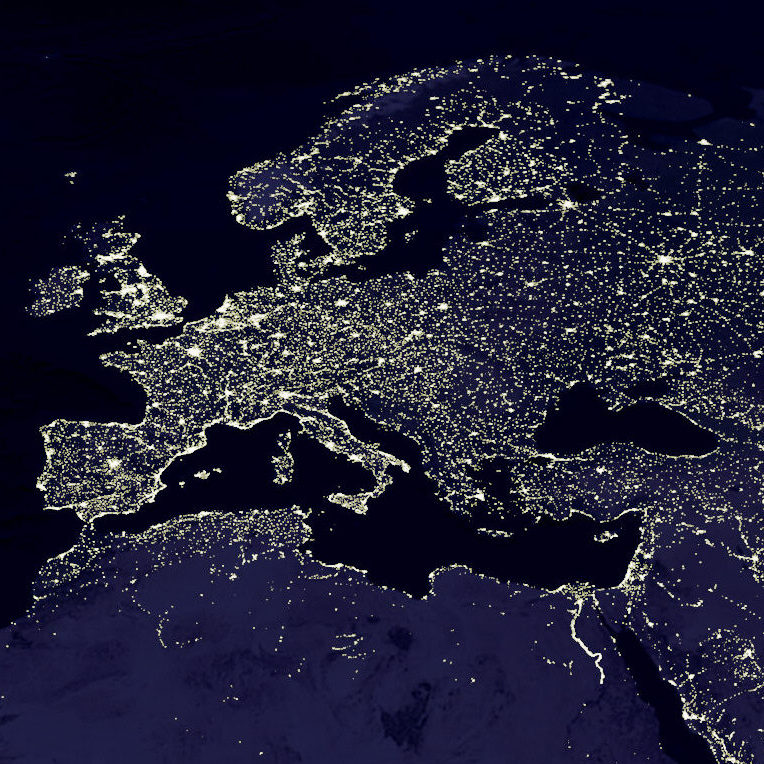
Energy Consumption

10% of Germany's energy consumption is used for lighting. On municipal level, street lighting can make up as much as 45% of public power consumption. This does not even include illumination for car parks and advertisement. Optimising such illumination is an important step to reduce costs, increase well being in residents and protect our climate and environment.
Modern LEDs are considered as more energy efficient than sodium and mercury vapour lamps traditionally used as street lights. However, savings in energy consumption often cause a rebound-effect: because light is less expensive, more light will be produced. The believe that more light equals more safety is not scientifically proven and no objective thresholds exist yet. Instead, research and years of experience suggest that light levels given in DIN norms are much higher than needed for vision. They can even be dangerous if differences in light levels lead to glare.
To save energy, more can be done than the switch to energy efficient light sources. Intelligent light concepts include smart decisions on direction, intensity and timing of light. Using light only where and when it is really needed will save additional energy and reduce lightpollution.
Blogposts about this topic
Nature- and neighbour-friendly Christmas lights
Short film: Light in harmony with human and nature
Is a 4000 Kelvin LED street light like the moon?
'There's too much light!' Another LightWalk in Berlin
Magic LED: Why our world gets brighter
German blogposts about this topic
LEDs als Straßenbeleuchtung: Fluch oder Chance?
Die Nacht schützen: Forschernetzwerk veröffentlicht Empfehlungen für Aussenbeleuchtung
Wenn keiner da ist, bleibt das Licht aus
Photo: Satellite photo of Europe at night, data courtesy Marc Imhoff of NASA GSFC and Christopher Elvidge of NOAA NGDC. Image by Craig Mayhew and Robert Simmon, NASA GSFC. [Public domain], via Wikimedia Commons



